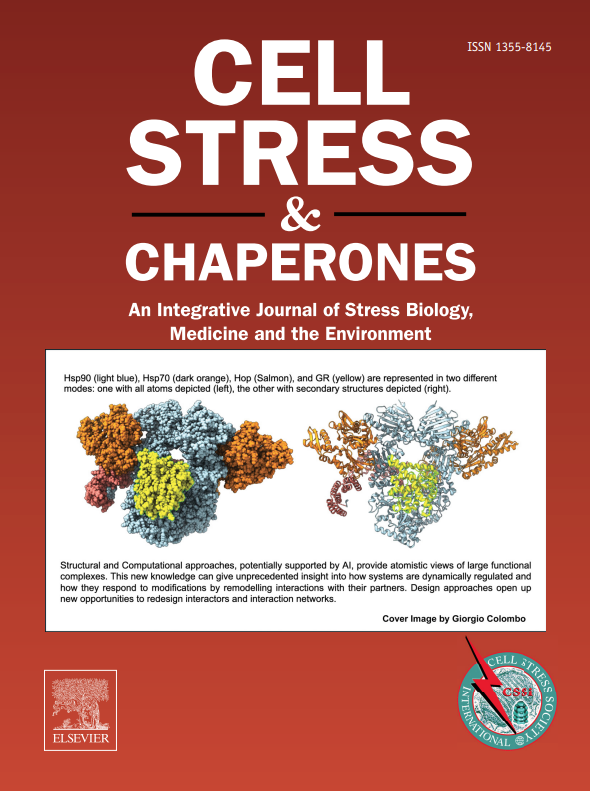皮质边缘系统中 FKBP51 的过度表达可稳定昼夜节律
IF 3.2
3区 生物学
Q3 CELL BIOLOGY
引用次数: 0
摘要
昼夜节律紊乱与广泛的健康问题和并发症有关,包括昼夜节律睡眠障碍(crsd)的风险增加。crsd在经历过创伤性事件的个体中很常见,特别是在那些患有创伤后应激障碍(PTSD)的个体中。编码fk506结合蛋白51 (FKBP51)基因的等位基因变异可增加创伤后应激障碍和其他应激相关疾病的易感性。这些变体中至少有一种通过糖皮质激素受体介导的过程增加应激后FKBP51的水平。在这里,我们使用了一个在整个前脑过度表达人类FKBP51的小鼠模型,rTgFKBP5,来研究FKBP51的升高是否会导致昼夜节律紊乱。令人惊讶的是,我们的研究结果表明,与对照组相比,rTgFKBP5小鼠(尤其是雌性)的节律幅度更大,节律碎片化程度更低。雌性rTgFKBP5小鼠在应激暴露基础上和应激暴露后也表现出更高的皮质酮水平。总的来说,本研究将FKBP51过表达与有益的昼夜节律结果联系起来。本文章由计算机程序翻译,如有差异,请以英文原文为准。
FKBP51 overexpression in the corticolimbic system stabilizes circadian rhythms
Circadian rhythm disruptions have been associated with a wide range of health issues and complications, including an increased risk of circadian rhythm sleep disorders (CRSDs). CRSDs are common among individuals who have been through a traumatic event, particularly in those who have post-traumatic stress disorder (PTSD). Allelic variations in the gene encoding for FK506-binding protein 51 (FKBP51) can increase the susceptibility for PTSD and other stress-related disorders following trauma. At least one of these variants increases the levels of FKBP51 following stress through a glucocorticoid receptor-mediated process. Here, we used a mouse model that overexpresses human FKBP51 throughout the forebrain, rTgFKBP5, to investigate if elevated FKBP51 contributes to circadian rhythm disruption. Surprisingly, our findings indicate a greater rhythm amplitude and decreased rhythm fragmentation in rTgFKBP5 mice, particularly females, compared to controls. Female rTgFKBP5 mice also showed higher corticosterone levels basally and following stress exposure. Overall, this study associates FKBP51 overexpression with beneficial circadian rhythm outcomes.
求助全文
通过发布文献求助,成功后即可免费获取论文全文。
去求助
来源期刊

Cell Stress & Chaperones
生物-细胞生物学
CiteScore
7.60
自引率
2.60%
发文量
59
审稿时长
6-12 weeks
期刊介绍:
Cell Stress and Chaperones is an integrative journal that bridges the gap between laboratory model systems and natural populations. The journal captures the eclectic spirit of the cellular stress response field in a single, concentrated source of current information. Major emphasis is placed on the effects of climate change on individual species in the natural environment and their capacity to adapt. This emphasis expands our focus on stress biology and medicine by linking climate change effects to research on cellular stress responses of animals, micro-organisms and plants.
 求助内容:
求助内容: 应助结果提醒方式:
应助结果提醒方式:


